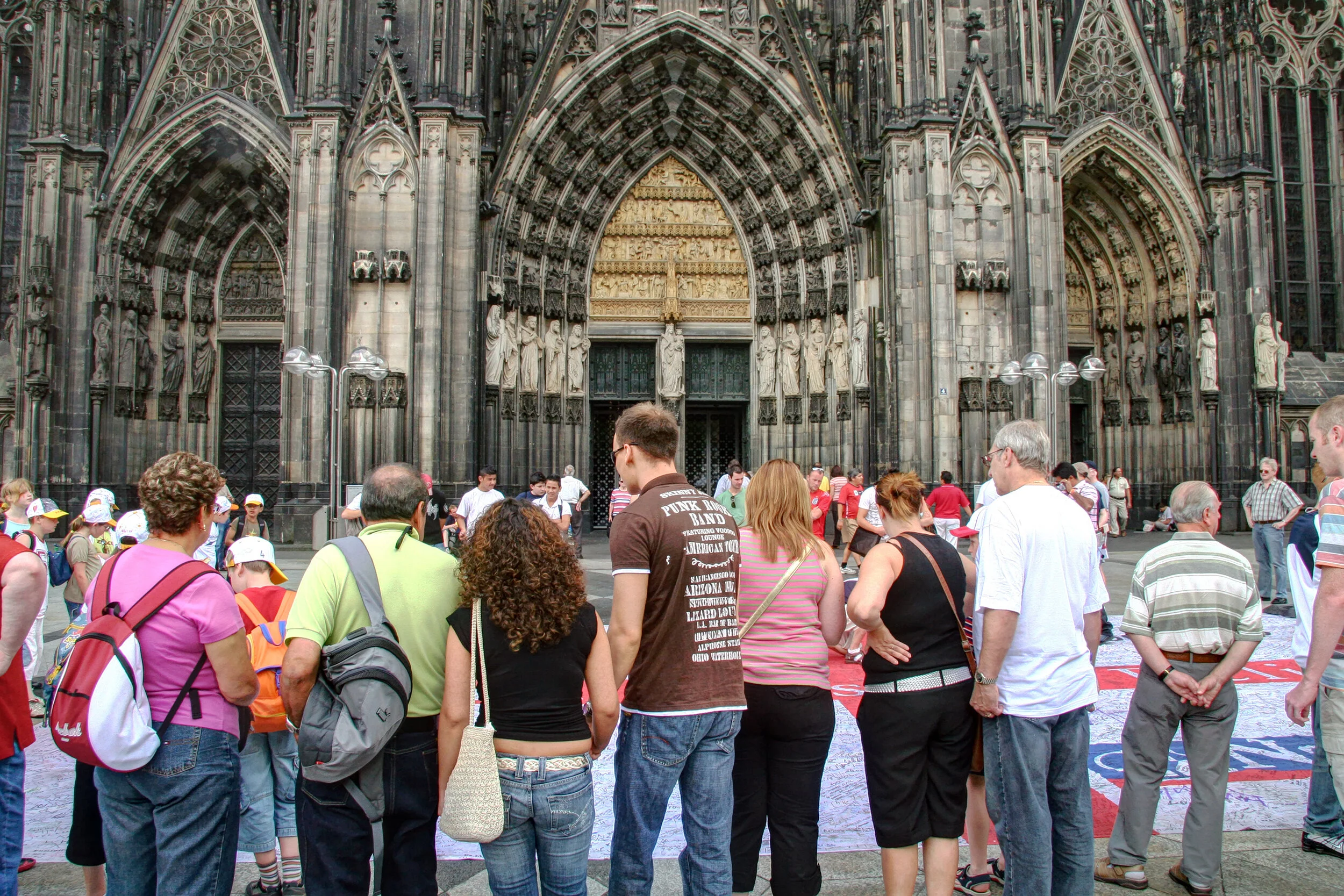
Page 2 of 12
Cologne, Germany
Let's have bizarre celebrations, let's forget who forget what forget where
I normally do not like to do any real traveling during summer. It's one of the times its nice to be where I am- lots of free concerts, festivals, events, those kind of things- as well as it being a horrible time to be in most of Europe. Subways and hotels are often not air conditioned and the volume of tourists is nowhere near as pleasant as you would find in September or October. This year I threw all reason to the wind and traveled in late June and July because of a lone scheduled event. Last year I had entered the FIFA World Cup lottery and tried for three games in Munich- a group match, a first round of the knockout stage and a semi-final game. Unlike most people I was actually fortunate enough to secure a seat to one of the games (the group match), but more about that later.
The result of this was that I spent the balance of the tournament traveling around Germany and Europe, able to see first hand what a World Cup is like in the stands, the packed train platforms and on the streets. This first picture is a taste of that. I had a short layover in Cologne (just ahead of a nasty summer storm) on the day or so before England was to face Sweden in a group match. The English fans had already set up camp in front of the cathedral, and swarmed in packs throughout the parts of the city I had seen. It was at the front door of the cathedral where it got to be the most territorial- a giant flag signed by well wishers and guarded over by just enough fans to intimidate any of those rational Swedes into thinking twice about starting some type of catchy, pro-Sweden chant.
The statues of the cathedral at Cologne (or Köln as all those non yet Anglicized locals still insist on calling it) do their best to look down upon the English fans and their giant flag with just as much righteous indignation as they look down upon everyone else with.
While I am not one who likes to generalize too much (or more accurately one who doesn't like to admit to generalizing too much), the English fans were the only ones that seemed like trouble- something supported by television reports involving German riot police after most English games. Unlike the Germans, Brazilians, French, Australians, Italians and Argentinians (and for reasons that are best understood by others) the soccer hooligan reputation with English fans seems quite well deserved.
It's easy enough to get around Germany, the Deutsche Bahn rail system is probably one of the best in the world. Super fast and super comfortable ICE trains fly at 300 kph (185 mph) between most cities, across an easy to understand system with frequent service and connections. This was my fourth railpass trip and this time I used a full fifteen day Eurailpass (currently priced at $605), available for adults over 27 years old for first class travel only. A nice way to get around.
A short, blurry hour away from Cologne, Frankfurt is Germany's banking capital, which basically means that it has a financial district with a few skyscrapers that make it feel just a little like Toronto or Seattle for a few blocks. This is from the rooftop of the Main Tower's pleasant enough observation deck, fifty (or so) stories above the streets but just about at eye level with Norman Foster's legendary Commerzbank Building (the one on the right).
The historic center of Frankfurt was destroyed in World War 2, just like in Rotterdam (see Page 1), Dresden (see Page 10) and Berlin (see Pages 11 and 12). In its place a lot of skyscrapers were built with the exception of the area called Romerberg, Frankfurt's not that old "old city." Despite such artificiality, Romerberg manages to have retained some of its history. Once an actual Roman settlement and then one of the sites of the crowning of Holy Roman Emperors, it is now a great place to take a picture and decide which of the open air cafes is just a little better than the otherwise identical one next door.

